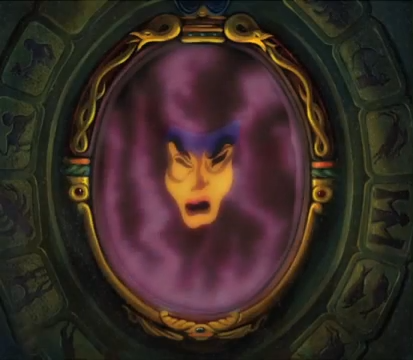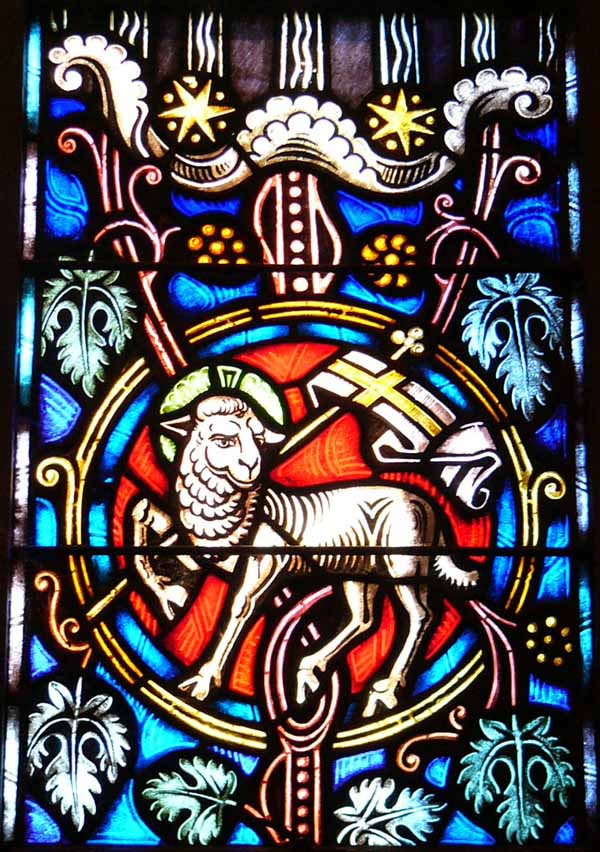Pastor
Tom Johnson, August 30, 2015
 “Mirror, mirror on the wall, who
is the fairest of them all?”
“Mirror, mirror on the wall, who
is the fairest of them all?”“Thou, O Queen, are the fairest in the land.”
And then later on, the mirror says, “Snow White, O Queen, is the fairest of them all.”
This sends the queen into a rage. So the Law can offend us. Mirrors, in fact, do speak. The picture they give, as the cliché goes, is worth a thousand words. Mirrors reflect light back. If the surface of the mirror is curved like it is at the carnival, it will send you a distorted image; you may look taller, shorter, wider, or narrower. The mirror we are talking about is no carnival attraction. There is no nick, bump, kink, or a spot on its surface. It is perfectly plane and completely flat. Its silver-coated glass is spotless. It sends a perfect image back. This mirror has been hand-crafted by no earthly craftsman but the Creator and the eternal Word himself. It is a window into our own souls. To look into this mirror is to see the naked self—the true and unfiltered me. This mirror is the Law.
When we look into
this mirror, our imperfections stare back at us—the wear and tear of time—the
scars and blemishes—the ravages of living in fallen world. We are confronted
with what the Law tells us to do and how we have failed: We have served
other gods, taken God’s name in vain, neglected his Word and worship, not
honored our parents, done bodily and emotional harm to one another, been
unfaithful, taken what is not ours, gossiped and slandered, and been jealous of
one another. We have broken each of the Ten Commandments.
“Mirror, mirror on the wall, who is the
fairest of them all.”
“Thou, O Sinner, are most certainly not,” the Law says,
“Thou, O Sinner, are most certainly not,” the Law says,
“You are, by your
fallen nature, sinful and unclean. You have sinned in thought, word, and deed,
by what you have done and by what you have left undone. You have not loved God
with your whole heart; you have not loved your neighbor as yourselves. You
justly deserve God’s present and eternal punishment.”
It is a courageous
and bold thing to do—to look into this mirror and confront the reality of our
failures. But that is exactly what this Scripture is calling us to do—to look
into the mirror and remember what we
see—to be mindful of how we need to
grow—that God wants us to mature and grow into Christ-likeness. Looking into this
mirror and forgetting what we look like is, perhaps, like how we Photoshop our
pictures. We erase the memory of those blemishes, that waist-line, the wrinkles
under our eyes and upon our brows. We create a false image where even
supermodels no longer look like the supermodels.
It is a common
thing for actors to not want to see themselves on the screen and to take off
their headphones in a radio interview so that they don’t have to even listen to
themselves speak. They painfully see and hear—as through a mirror—their imperfections. Charles Spurgeon,
a 19th century English Baptist preacher, was one of the first people
to have his voice recorded and played back on a cylinder audio recorder. He
said, “The worst
punishment for preachers would be to listen to their own sermons. After hearing
themselves preach, they would say with Cain of old, ‘My punishment is too great
for me to bear!’”
The Law is a schoolmaster,
Scripture says, that leads us to Christ (Gal 3:4). It is like one of those nannies
you see with small children leading them to the grade school of the Gospel.
There is order. There is direction. There is discipline. One preacher said,
“You may take a piece of silk thread, and try to sew with it as long as you
like, but you will do nothing with it alone. You want a sharp, piercing needle
to go first, and that will draw the silken thread after it. So, the needle of
the Law prepares the way for the thread of the gospel” (Robbie Flockhart).
There is great
power and promise in this difficult
gaze into the mirror. Because God’s purpose is not to humiliate us or condemn
us but lead us to the cleansing waters of Baptism and dress ourselves in the
perfect righteousness of Christ. This is what it
means to be a “doer of the Word”—to experience the life-transforming grace of
the Gospel—to realize one’s need for
forgiveness and to realize its promise
through Christ. Scripture says
that we are God’s mirrors of Christ to the world. We radiate Christ into all
eternity more brightly than the midday sun. “All of us,” one Scripture says, “with
unveiled faces, seeing the glory of the Lord as though reflected in a mirror,
are being transformed into the same image” (2 Cor 3:18).
“Mirror, mirror on
the wall, who is the fairest of them all?”
“Snow White is the fairest of them all”
 —the spotless Lamb of God—our sacrifice without
blemish, our Savior without sin—who gave his life and rose again to give us a
makeover.
—the spotless Lamb of God—our sacrifice without
blemish, our Savior without sin—who gave his life and rose again to give us a
makeover.
“Snow White is the fairest of them all”
 —the spotless Lamb of God—our sacrifice without
blemish, our Savior without sin—who gave his life and rose again to give us a
makeover.
—the spotless Lamb of God—our sacrifice without
blemish, our Savior without sin—who gave his life and rose again to give us a
makeover.
It begins with a
hard look in the mirror. It ends with us radiating his glory forever.



.jpg)